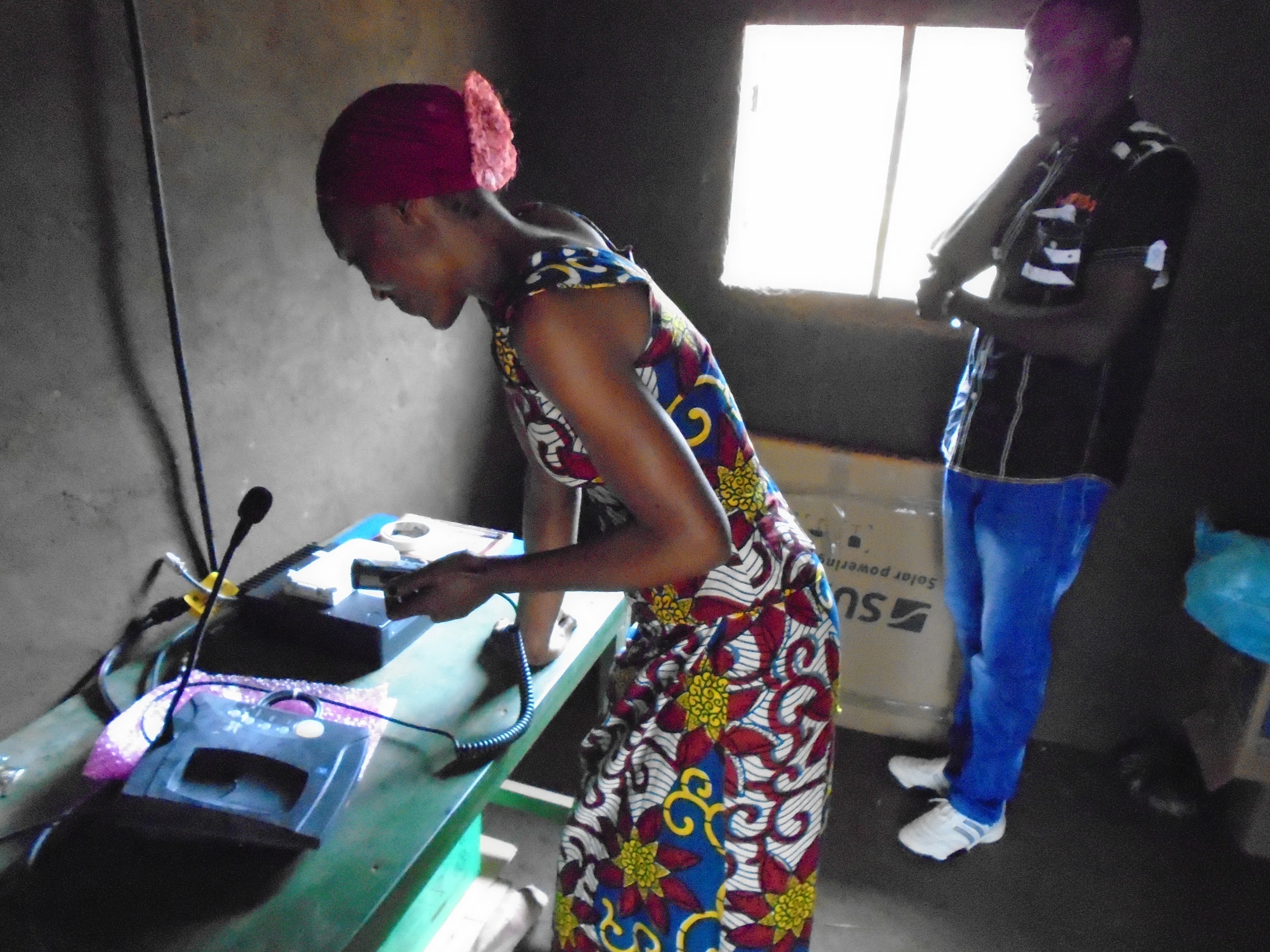Over the weekend, former Secretary of State, Hillary Clinton, made a surprise appearance at the Tribeca Film Festival in New York. Clinton joined a discussion panel following the premiere of The Protectors: Walk in the Rangers’ Shoes, a Virtual Reality film by Kathryn Bigelow and Imraan Ismail, which offers a glimpse into the realities of life as a park ranger in D.R. Congo’s Garamba National Park managed by the conservation NGO, African Parks, in collaboration with The Congolese Institute for Nature Conservation (ICCN) since 2005. The film highlights what it takes for Garamba rangers to protect the park’s wildlife and promote the safety of local communities in the face of threats from armed poaching groups, including the Lord’s Resistance Army (LRA).

Hillary Clinton discussing elephant poaching on a panel with Kathryn Bigelow. (Anthony Behar/National Geographic/PictureGroup)
In recent decades, illegal poaching and wildlife trafficking have decimated much of Africa’s wildlife population and has taken an especially significant toll on Garamba’s elephant population. In 1960, Garamba was home to roughly 20,000 elephants, but by 2003, that number dropped to only 8,000. Today, due in large part to illegal poaching, less than 1,300 elephants remain in the park.
As part of a discussion panel following the film, Clinton emphasized how, in protecting African wildlife, rangers are not only helping to stop the alarming decline in elephant populations but also helping to prevent violence in local communities and around the world. By stopping poaching and wildlife trafficking in and around Garamba National Park, rangers are reducing the threat of poaching-related violence against communities and cutting off a major funding stream for regional and global terrorist organizations.
Clinton stated that she first began to recognize the link between wildlife trafficking and the safety of human populations during her time as Secretary of State, stating,
“It became clear to everyone that this was not just a terrible crisis when it comes to the elephant population, it was a trade, a trafficking that…was funding militias, it was funding the Lord’s Resistance Army, it was being used to take ivory and sell it in order to buy more weapons, and support the kind of terroristic activity that these and other groups were engaged in.”
As the former Secretary of State mentioned in her remarks, the LRA is a prime example of how the exploitation of wildlife, which Garamba’s rangers are bravely working to prevent, directly connects to increased violence against communities in central Africa. Based on reports from our Early Warning Radio Network and interviews with former LRA captives, we know that LRA groups frequently poach ivory in Garamba National Park, which is then sold to fund their operations. The graph below, displaying data from our LRA Crisis Tracker, shows spikes in LRA attacks and abductions in Congolese communities surrounding Garamba during times when LRA groups have been actively engaged in elephant poaching missions ordered by Joseph Kony.

One of the biggest challenges that rangers in Garamba face in their role as protectors is a lack of timely and reliable information on poaching activity. While most communities in and around Garamba often see and experience signs of poaching first hand, their isolation and lack of basic tools to communicate prevents them from sharing this vital information with park rangers and other actors in the region working to protect civilians. This inability to quickly communicate information is a huge part of why violent poaching groups have been able to target local wildlife and communities for years. It is a key vulnerability that must be addressed in order to protect families and end illegal wildlife trafficking.
That is why we continue to expand our Early Warning Radio Network to reach more central African communities affected by violent armed groups that are also engaged in wildlife poaching and trafficking. With the help of this high frequency (HF) radio technology, and by collaborating with local Peace Committees and wildlife conservation actors, we are empowering central African communities to be central players in their own safety and the safety of their environment.

In 2016, thanks to your support, we were able to expand the Early Warning network to a community just outside of Garamba National Park that sits along a route commonly used by South Sudanese poachers. Today, members of this community are able to participate in daily security calls with dozens of other communities in the area for the very first time, giving them the ability to rapidly share and receive information about safety threats in the area, including poaching activity. Our Early Warning team then works to ensure Garamba personnel receive up-to-date information that can help them protect the park’s wildlife and support the safety of nearby communities.
Because of supporters like you, thousands across central Africa now have the tools they need to protect themselves and support the protection of endangered regional wildlife. We’re honored to work alongside brave individuals like the Garamba Park rangers to end violence and exploitation facing central Africa’s human and wildlife populations.
But our work isn’t done. There are still dozens of remote communities across central Africa that we haven’t yet reached, and that remain isolated and highly vulnerable to armed group violence. Stand with these communities in their pursuit of peace and safety by supporting programs like the Early Warning Network, or by giving to African Parks’ outfit a ranger program. And make sure to experience The Protectors film on May 1, when it will be released by National Geographic via the virtual reality app, Within (or check it out on Youtube or Facebook 360 the following week).
Think people should hear about this?